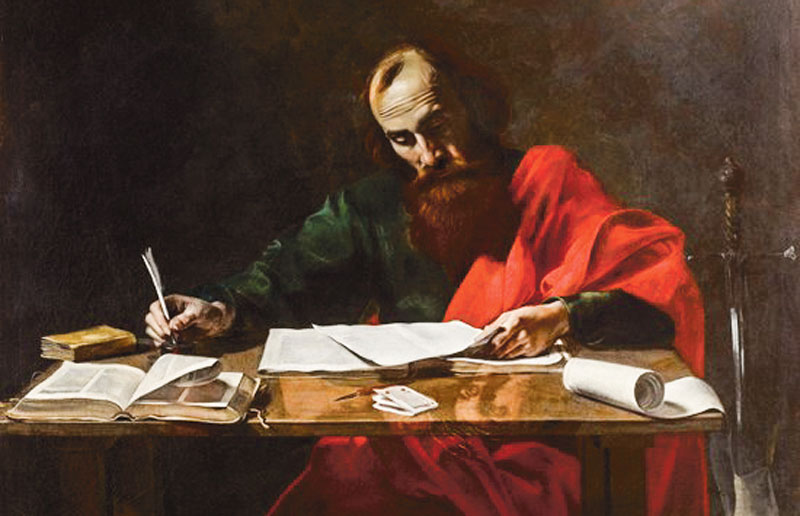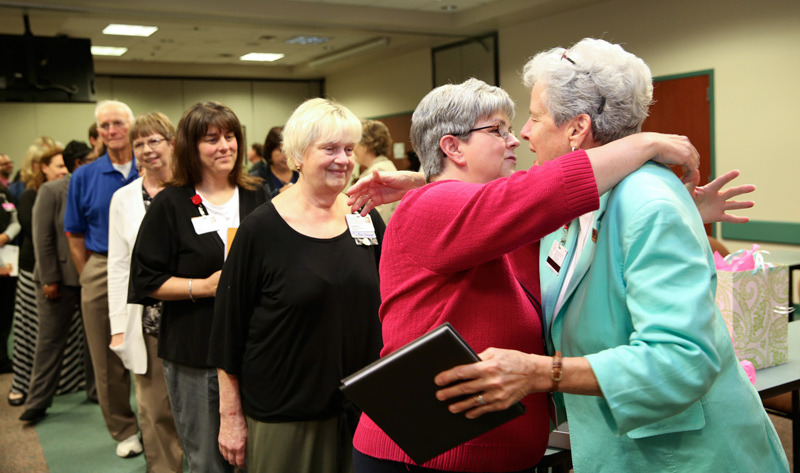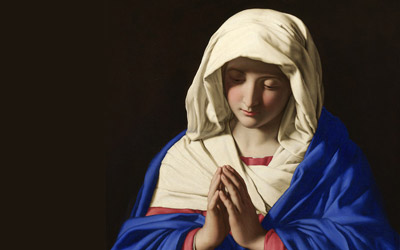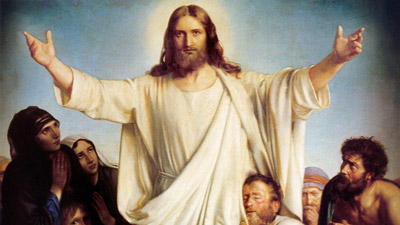
My Uncle Howie Smith often shook his head in wonderment as he baffled new acquaintances with talk about becoming a husband, a father, and a grandfather, all within six months. Then he would laugh and explain that he had been a lifelong bachelor until he was 55 when he married a widow with a teenage son and a 20-something married daughter who was pregnant when he and Aunt Jeannette married. What he would have pooh-poohed is the thought that he might fit into Pope Francis’ description of the “holiness of the Church militant . . ., the holiness found in our next-door neighbors.”
Howie quit school and began to work when he was 13. He had two younger brothers, and his father had died of pneumonia on the eve of the Great Depression. After a stint in the Army during World War II — when Grandma’s three sons, her only children, were all enlisted — he took a job as a post office clerk. Until he was 48 years old he was the supporter and caregiver for her.
While Grandma had glow-in-the-dark statues of the Blessed Mother on her bureau and rosary beads hanging from her bedpost, Uncle Howie was never demonstrably religious. But he attended church faithfully, observed Lenten fasts and meatless Fridays, said grace, and was friendly with the Franciscan priests in his parish. What he excelled at, however, was the imitation of Christ in one special regard.
In St. Paul’s Letter to the Philippians, we find a passage known as the great “kenotic” hymn. Its theme is about Christ’s self-emptying. When we think of sacrificial love, we think immediately of the passion and crucifixion. But this hymn reminds us that the initial self-emptying of Christ was the incarnation, the stunning act whereby God became a vulnerable human being. Paul introduces the hymn with the advice, “Have among yourselves the same attitude that is also yours in Christ,” and speaks of how Christ “emptied himself, taking the form of a slave . . .; he humbled himself, becoming obedient to death.”
Uncle Howie’s self-emptying continued when my father and grandmother died within five days of each other. We had moved from New York to Pennsylvania and had no relatives in the state. So, every six weeks for the next seven years Uncle Howie made a trip to check on us and do repairs on the house. He was there for First Communions, Confirmations, graduations, and holidays for the four kids who were his nieces and nephews. He housed my brother and me for eight-week stints when we won grants to attend summer science programs in New York. We barely realized that he was sacrificing time, money, and a social life to be uncle, godfather, father, and grandfather all in one.
If anyone had remarked on how much he had given up, Uncle Howie would have shrugged and put his feet up on Grandma’s 50-year-old hassock.
Pope Francis says that our everyday saints represent the “middle class of holiness.” I would put my uncle in class A of the selfless giving department.
Sister Pamela Smith, SSCM, is the Secretary for Education and Faith Formation at the Diocese of Charleston. Email her at psmith@charlestondiocese.org.




